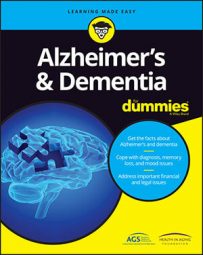| Age | Number diagnosed |
| Younger than 65 | 1 in 1,500 |
| 65–70 | 1 in 100 |
| 71–79 | 1 in 20 |
| 80–89 | 1 in 4 |
| 90+ | 1 in 3 |
These figures represent an average, and life expectancy across the United States varies depending on levels of poverty and other factors. To the same extent, life expectancy in some countries is much lower than in the United States; in the African nation of Chad, for example, it's only 49.5 years.
Over the next few decades these figures are expected to rise along with the proportion of older people in the population as a whole. According to government figures, currently 44 million people in the United States are older than 65 years of age. By 2030, it's estimated that 25 million more elderly people will be residing in the United States, rising to around 79 million by 2050.A boy born in the United States in 2030 will have a good chance of living until he's 85, and a girl to 90. Given the rising chance of developing dementia with age, it's feared that cases will become far more common as a result of this boom in life expectancy.

